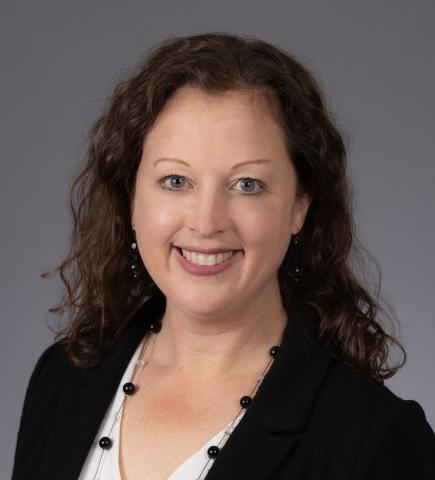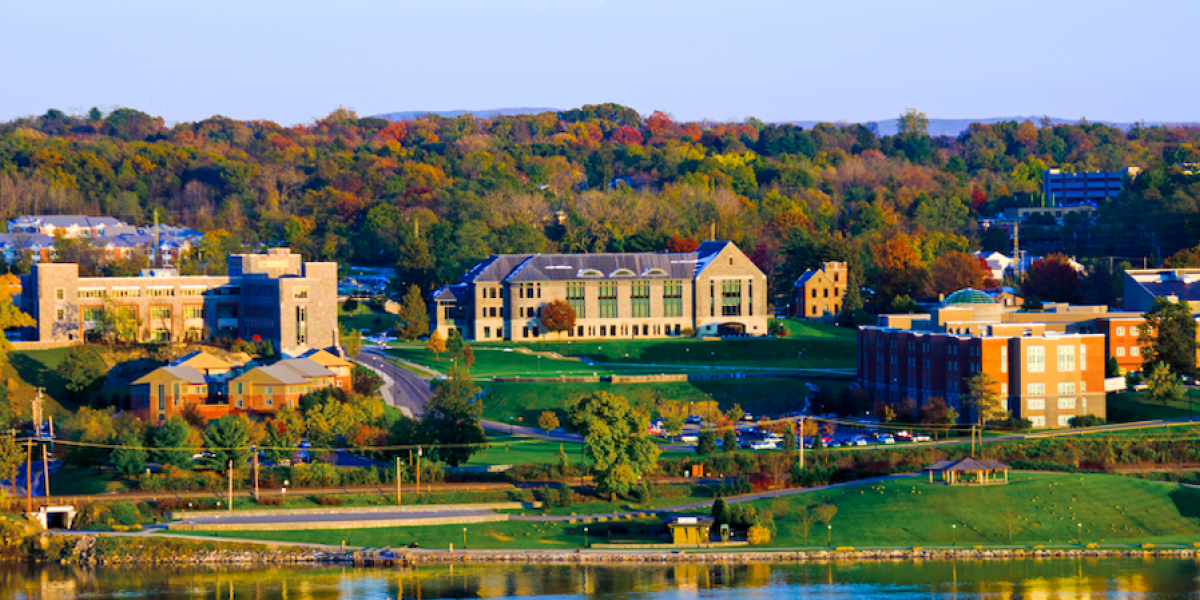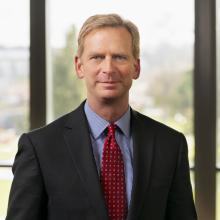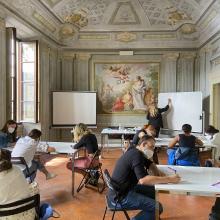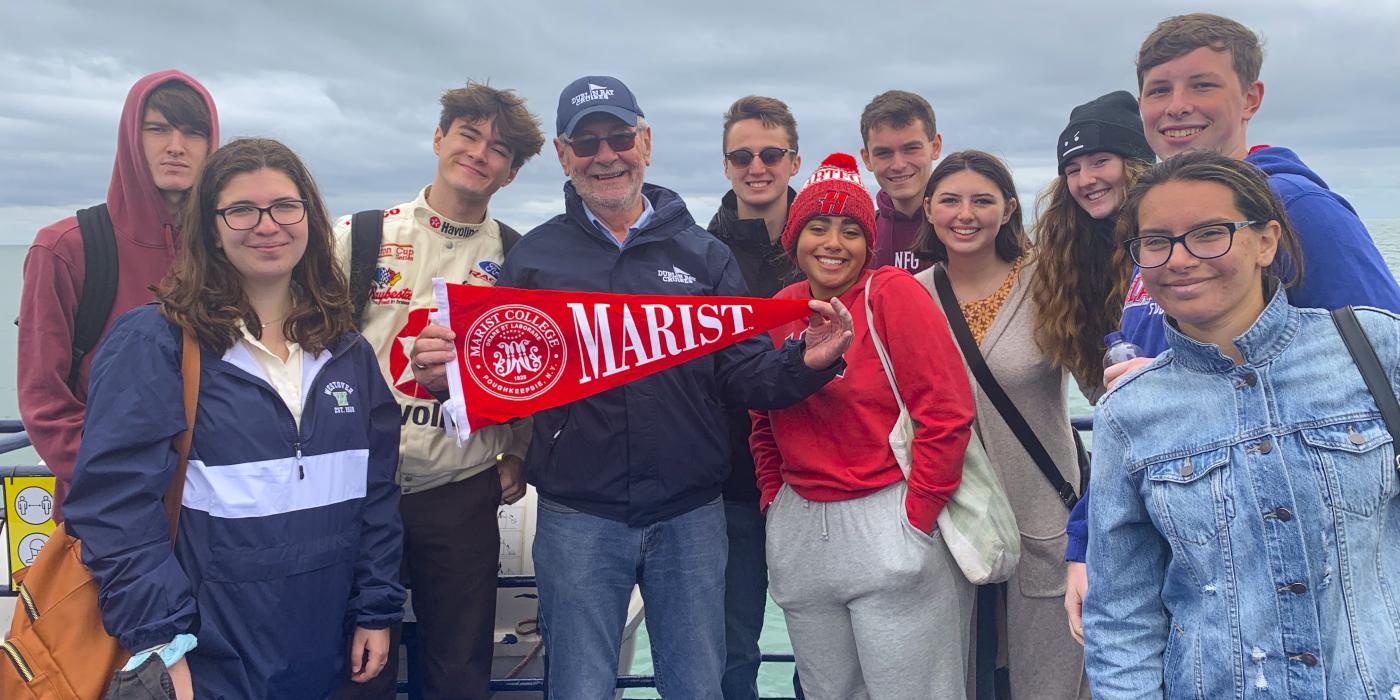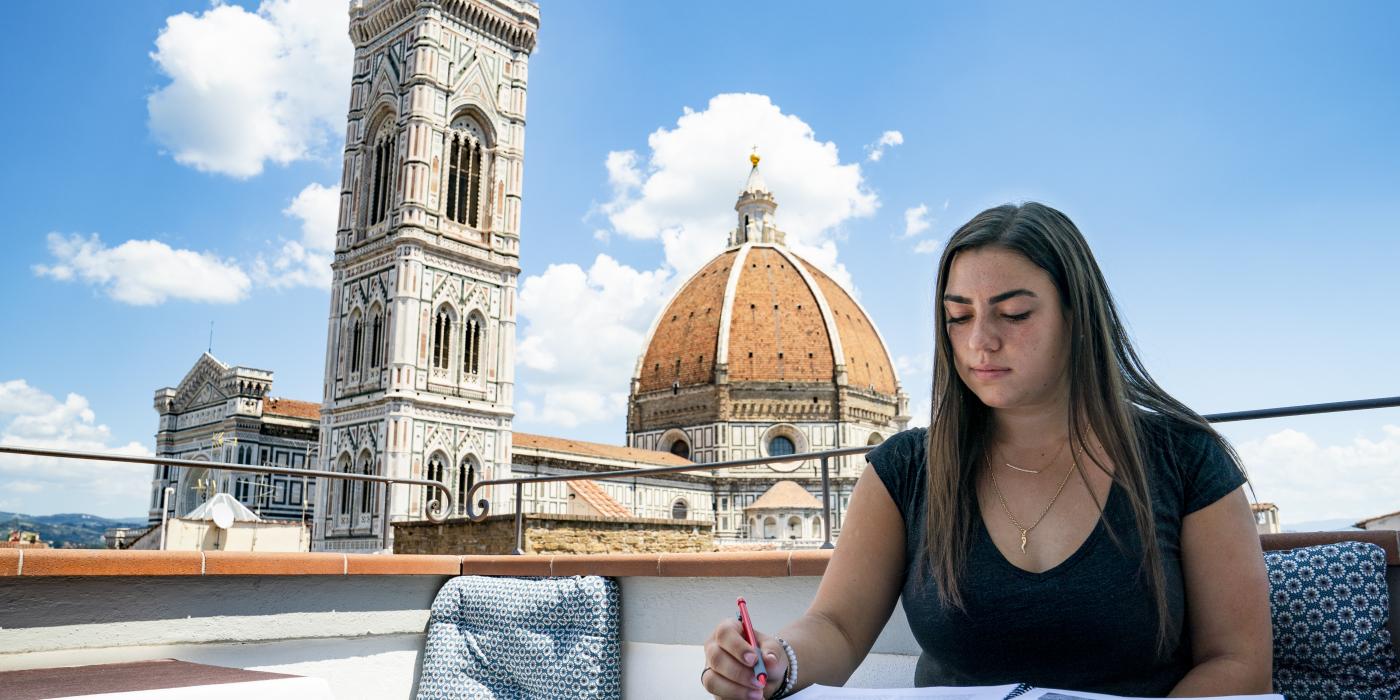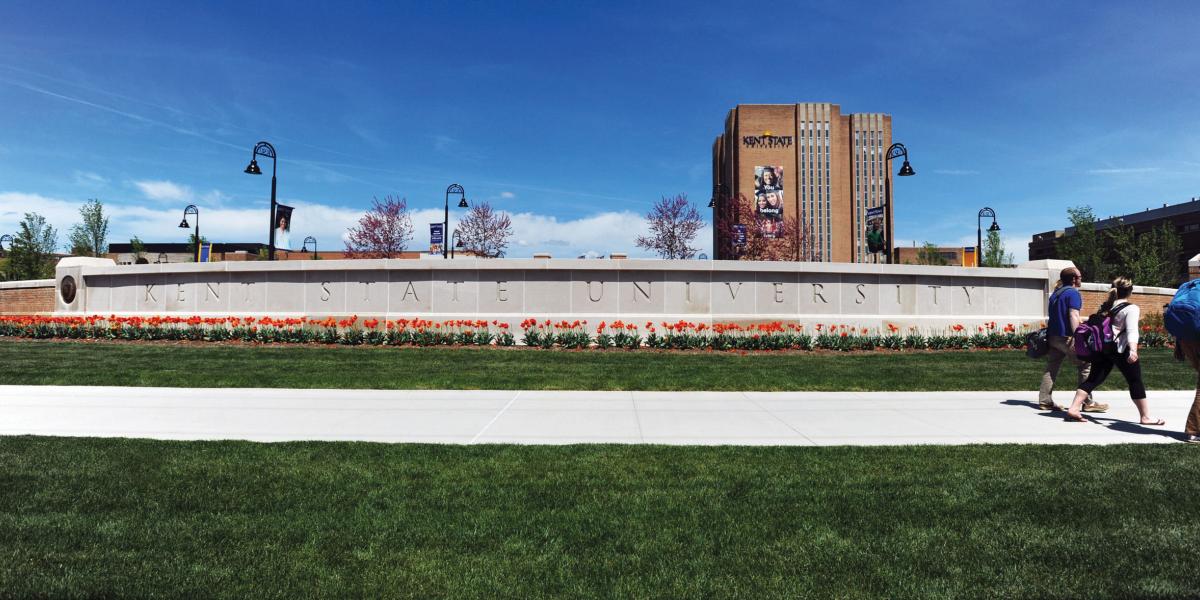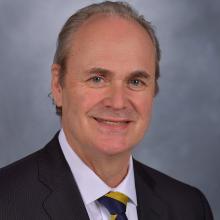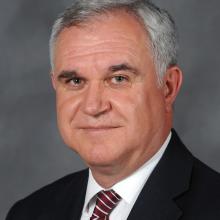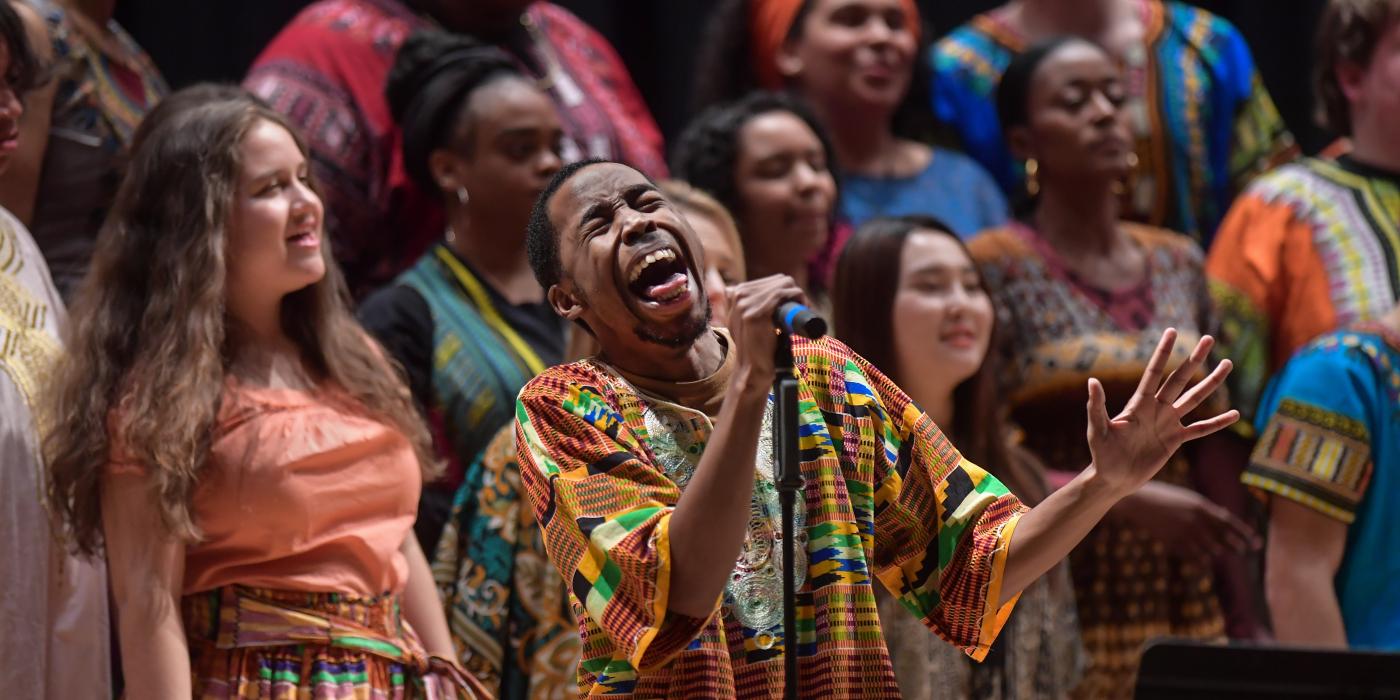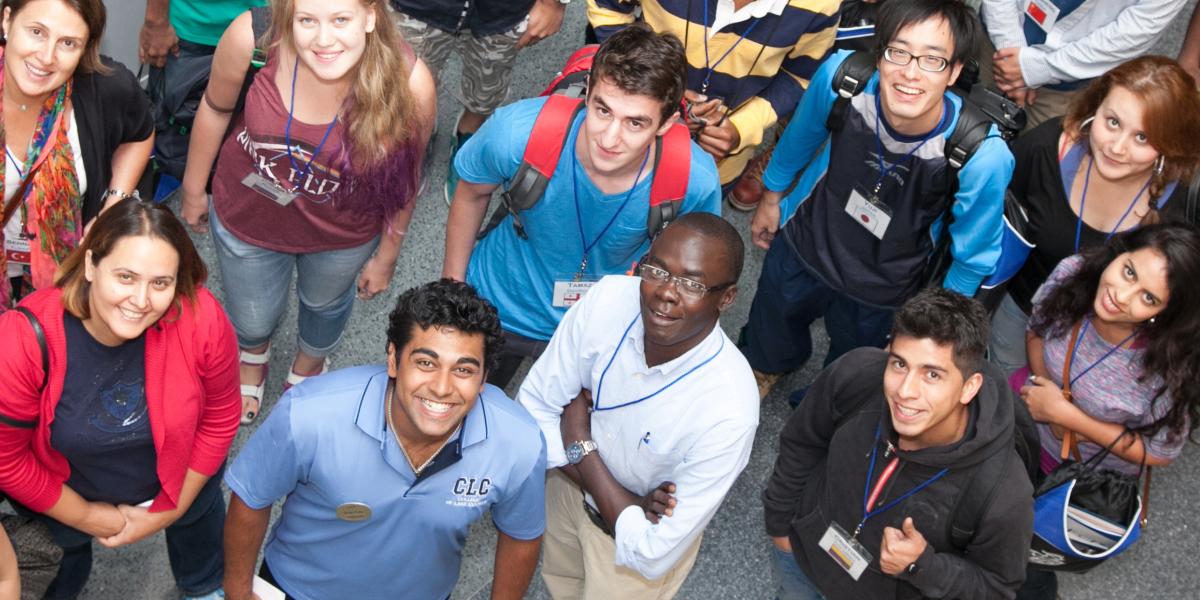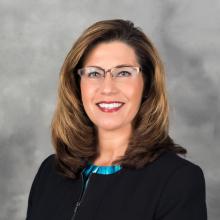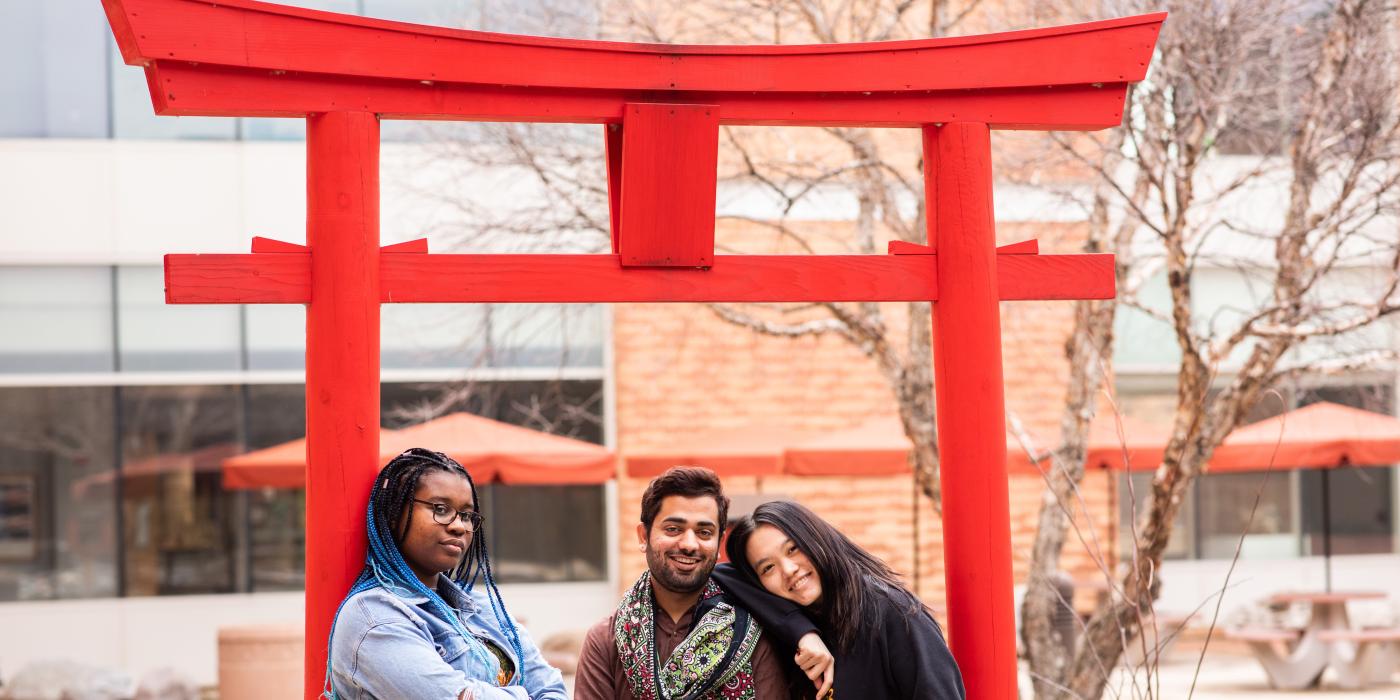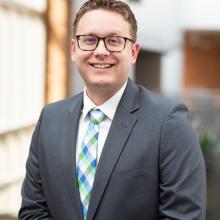Teaching, Learning, and Facilitation
Humanizing our Work with Globally Mobile Students
2022 Spotlight Marist College
Marist is a private liberal arts college with 5,000 undergraduates in Poughkeepsie, New York. The college sent its first student abroad in 1963, and 60 years later approximately half of each graduating class has participated in education abroad. One of its signature offerings is the First Year Abroad programs*, where 40 to 60 first - year students spend a year studying with partners in Italy and Ireland, giving them a global foundation for their college experience.
Having students spend their first year abroad as 17- and 18-year-olds can help set the tone for the rest of their college career, says John Peters, dean of international programs and acting dean of Marist College- Italy. “We're able to help them to think about the broad scope of what they want to do in the world,” he says.
The First Year Abroad program was in its beginning stages in the mid-2000s when Marist experienced a larger than expected incoming freshman class and too few beds to house them. Inspiration and necessity strengthened momentum and helped grow First Year Abroad at the Florence branch campus.
In Italy, Marist has partnered with Istituto Lorenzo de’ Medici. In addition to the First Year Abroad program, students have the option to complete their full 4 years at the Florence branch campus, choosing among nine different undergraduate programs. Traditional study abroad students can spend a semester or year there. A master’s of arts in museum studies is also available. Altogether, the campus hosts around 300 Marist students a semester across all programs, says Vanessa Nichol-Peters, director of Marist Italy.
A second First Year Abroad program started in Dublin in 2018. In Ireland, Marist has partnered with Dublin Business School for academics. The second First Year Abroad cohort to study in Dublin had their time cut short in spring 2020 due to the pandemic, but the program resumed with the third cohort in fall 2021, says Shane Duffy, director of the Dublin program.
Creating a College Identity Abroad
Working with first-year students with no college experience requires a hands-on approach. Peters says that it's essential to have staff who are willing and eager to interact with students 24/7, especially during the first weeks of the program abroad. “Trusted partners can have important roles in academics and housing, but there’s no substitute for having your own person or people on the ground, ensuring institutional presence,” he says
Program participants take most of their courses alongside students from a variety of countries and other U.S. colleges. However, the academic anchor of the Marist First Year Abroad programs are courses taught by carefully selected affiliate faculty or visiting faculty from the Marist home campus, including a first-year seminar and a college writing class. These courses serve as common experiences to build community and Marist identity and helps the program integrate academic and experiential education.
“We try to build a Marist identity here so that they all feel like they're part of something bigger,” Nichol-Peters says.
Having Marist professors on site in the fall helps build a bridge between the programs abroad and the main campus in Poughkeepsie. In addition to virtual presentations from staff in the library and other offices, academic deans, vice presidents, and even the president occasionally travel to Dublin or Florence to meet with students.
Students also have two advisers—their adviser at their study abroad site, as well as their major adviser back in New York. To make sure the program is financially accessible, all participants are awarded a $5,000 grant in addition to their regular financial aid package to help offset the extra expenses of studying abroad.
Integrating Experiential Learning into the Classroom
In addition to providing a connection to the main campus, Marist faculty also help integrate experiential learning into the classroom.
Students in the Dublin program take a course called “Irish Life and Cultures” that covers history, politics, and both traditional and modern culture in Ireland. The fall courses often incorporate experiential activities, such as a trip to Galway in the west of Ireland.
Students also visit the Cliffs of Moher and the Aran Islands as well as Northern Ireland where they take a political tour. There, Marist partners with an organization that sets up meetings with former combatants from both sides of the political divide.
“By that stage, the class has covered the history of the island, Northern Ireland, the Troubles and the peace agreement, and the Good Friday Agreement, so they have an academic context to the issues,” Duffy says. “But now they're getting local perspectives and learning the history of the struggle through the eyes of people on the ground.”
Philosophy professor Joe Campisi has taught in Florence three times. He integrates his expertise on the philosophy of food into his courses. In one class, students learned about the history of pizza in Naples, where it emerged as food for the city’s poor in the late 18th century.
Jack Kraus, a political science major who just finished his junior year, took Campisi’s class in Florence. One of the writing prompts was to try a new food. “That was actually a pretty cool assignment because I tried tripe, which was something I had never had before,” he says.
Returning Home
Having Marist faculty in Florence and Dublin with students provides them a “grounding in what it will be like at Marist,” Kraus says. It also helps ease the transition when they arrive in Poughkeepsie as sophomores.
Before students leave Dublin or Florence, they also have a day-long reentry program where they discuss what to expect when they return home. Upon arriving on campus in the fall of their sophomore year, they continue to participate in group activities, such as hiking or visiting New York City. They also have sessions with different offices on campus, including one with the career center. Program staff run a seminar called “Beyond Awesome,” which gives students the language to talk about what they gained from the First Year Abroad program, Peters says.
Peters says the First Year Abroad participants have equal or higher first-year to second-year retention rates than the general student population at Marist. Many of them win awards or go on to do Fulbright fellowships or other international graduate programs.
Faculty say that when students return to the Poughkeepsie campus for their sophomore year, they are more mature and better prepared for the classroom. Students agree.
“Going abroad sort of helps you grow up a whole lot faster than just coming to the regular campus because we were basically thrown into Italy and we sort of have to figure it all out for ourselves,” Kraus says.
After his second semester in Italy was cut short by the pandemic, Kraus took a semester off and came back to Poughkeepsie campus in spring 2021.
“The biggest issue is making friends and finding that footing on campus,” he says.
But he already had a head start. Kraus says his two best friends at Marist were his roommates in Florence.
*Marist College renamed the First Year Abroad Programs in 2023. An earlier version of this report referred to the experience as Freshman Year Abroad Programs.
Marist College
2022 Comprehensive Kent State University
With about 35,000 undergraduate and graduate students across eight campuses, Kent State University (Kent State) is a major public research institution located in Northeast Ohio. Internationalization is embedded in the university’s strategic plan, with the goal of establishing Kent State as a leading international university. The institution accomplishes this through global research, comprehensive study abroad programs, international curriculum, and robust international student and scholar programs. The university is also a popular destination for international students and has a global reach with educational centers in Italy and Brazil.
Kent State has a long history of international engagement. “As early as the early 1960s, Kent State was hosting delegations of educators from the Soviet Union through the Gerald R. Reed Center in our College of Education, Health and Human Services,” says President Todd Diacon. “So there’s a really long history of active internationalization at Kent State. And then we’ve had exceptional leadership throughout the years and expansion into the university writ large.”
Marcello Fantoni, vice president for global education, says that over the last 10 years Kent State has fostered a strong culture of internationalization that built on the institution’s long history of global engagement.
Internationalization was solidified as one of the institution’s five priorities in its 2015–2021 plan, “A Strategic Roadmap to a Distinctive Kent State.” The priority focuses on enhancing the university’s global competitiveness by advancing Kent State’s impact and reach as a leading international university.
The strategic plan was developed under the leadership of Diacon’s predecessor, former Kent State president Beverly J. Warren. She launched a “listening tour” that asked different parts of the institution to weigh in as the plan was developed.
“The strategic plan is a way of keeping us mindful of and accountable for the importance of being comprehensive in our internationalization,” adds Melody Tankersley, senior vice president and provost.
Every student at Kent State has the opportunity to engage globally, whether that’s through interacting with the 1,400 international students from nearly 100 countries, studying abroad through one of 200 education abroad programs, participating in international research opportunities, or engaging with international faculty.
Students encounter global perspectives in the classroom. As part of the requirements for any bachelor’s degree at Kent State, all students have had to take a global diversity course that focuses on global issues since 1999.
In 2017, Kent State’s senior leadership also supported the university’s participation in the American Council on Education’s (ACE) Internationalization Laboratory. About two-thirds of faculty who responded to an ACE survey reported that curriculum in their academic program exposed students to international perspectives.
In addition to individual courses, the university offers 18 undergraduate majors and 14 graduate programs with an international focus. Several programs, such as the university’s top-ranked fashion major, require study abroad (or away) or foreign language coursework.
Integrating International Operations
The Office of Global Education (OGE) includes international recruitment and admissions, international student and scholar services, education abroad, and global partnerships.
“We’re a big university and having us all together under one banner helps keep us from being siloed and facilitates the communication process so we have a really smooth transition from the time a student is admitted to the time they arrive on campus,” says Sarah Malcolm, executive director of the OGE.
The model allows education abroad, international student services, and international admissions to work closely together. “We can make sure that we take care of the student holistically from the time we meet them on the road in their home country to the time that they’re graduating from Kent State,” says Salma Benhaida, director of international recruitment and admissions.
One of the mechanisms to ensure that international students have the support they need is the International Student Integration Committee, a campus-wide body that includes representatives from across the university such as faculty from all colleges and regional campuses, and staff from academic, administrative and student support units.
“It’s there so that we can keep abreast of what kinds of issues are happening with international students and scholars and also help to make sure that they’re acclimating to our campus community,” Malcolm says. “That committee does a lot of work to make sure that international students are included in the normal things that happen in the university.”
A Flagship Program in Florence
In the 2019–20 academic year, Kent State sent nearly 1,500 students abroad through more than 200 education abroad programs. Since resuming its international programming in July 2021, Kent State has returned to its full operations abroad and is already projected to surpass its previous enrollment in education abroad programs by fall 2022.
The development of articulated pathway programs in business, arts and sciences, and architecture and environmental design has allowed students in these disciplines to study abroad while staying on track for graduation. “The curriculum has been designed to be integrated into the students’ roadmap here at Kent State,” says Amber Cruxton, director of education abroad.
The university’s flagship education abroad program is Kent State Florence, currently the largest U.S. program in Florence, Italy. Staff are currently in the process of organizing an anniversary celebration of its 50-year presence in Italy.
“It started with 11 architecture students going to Florence for one week in the summer in 1972,” Fantoni says. “Now fast forward 50 years later, we are leasing one of the most beautiful historic buildings in downtown Florence and we host about 850 students a year from every single Kent State college.”
Fantoni started his own career in Florence, first as an adjunct faculty member teaching a course in the architecture program and later becoming academic director of the Florence center. In 2012, he was invited to come to the campus in Kent, Ohio, to serve as the institution’s senior international officer.
All 11 of Kent State’s colleges offer coursework in Florence with programs custom designed to meet their needs. The center even hosts programs such as the College of Podiatric Medicine’s Clerkship. Podiatry students can complete one of their training rounds in Italy, working in local hospitals and honing their intercultural communication skills, while learning how different countries approach medicine.
Through specially funded and designed programming, Kent State Florence also provides traditional study abroad experiences to underserved students, such as those enrolled at Kent State’s regional campuses, and boasts a successful past program for the TRIO Upward Bound program for high school students.
The center employs several dozen local faculty who are vetted by their departments at the campus in Kent, Ohio, and hosts visiting professors from its U.S. campuses. In summer 2022, 26 Kent State faculty members traveled to Florence.
Fantoni says the Kent State Florence program offers all the same resources and services that are available in Ohio, ranging from mental health counseling to IT support. In addition, the venue serves as a research center, regularly hosting lectures and conferences.
More recently, Florence has served as a host location for international students who are interested in studying abroad. The center hosts students from various partners around the world. In summer 2022, for example, Kent State Florence hosted 20 students from a women’s college in Saudi Arabia.
Creating Innovative Partnerships Abroad
Kent State has also found ways to serve more international students through innovative partnerships abroad. The institution is currently in the process of developing new educational centers in Rwanda and France and recently signed an agreement with the Paris American Academy. This partnership will offer degrees in subjects such as fashion, art, and writing. Students will spend their first 2 years in the United States at Kent State and will complete their degrees in Paris, Fantoni says.
Since 2018, Kent State has offered the American Academy, a joint degree program with the Pontifical Catholic University of Paraná (PUCPR), located in Curitiba, Brazil. The program allows students to complete their first 2 years of undergraduate study in Brazil at the PUCPR campus, taking classes in English taught by Kent State faculty members who travel to Brazil to teach.
The students earn academic credit from both institutions simultaneously and can choose either university for degree completion at the end of the two-year associate degree program. Approximately 150 students are enrolled each semester, with more than half, on average, choosing to continue their studies at Kent State.
Malcolm says the American Academy in Brazil has been successful because of the strong commitment of both partners in terms of resources, staff, and time. An administrator from PUCPR spent a year at Kent State as a visiting scholar. And prior to the pandemic, Kent State sent faculty to PUCPR every semester. “People have a lot of ideas for great international programs, but without that kind of commitment from the top down, it doesn’t happen,” Malcolm says.
2022 Comprehensive College of Lake County
As a public community college and Hispanic-Serving Institution, the College of Lake County (CLC) focuses on creating equitable international engagement opportunities for its 14,000 undergraduate students through strategic partnerships, study abroad programs, and curriculum internationalization. A new physical space and revamped governance structure for global engagement have helped put internationalization at the center of campus culture at CLC, located in Grayslake, Illinois.
A renovated student center in the heart of the College of Lake County’s campus in Grayslake, Illinois, gave international programs more visibility, complete with a Global Community Hall that was dedicated in 2020. The hall is adorned with flags representing the home countries of the student population.
“The physical presence has really helped to solidify our transition from two people working really hard in an office to help international students and study abroad students to a full-fledged center with four full-time staff guiding strategic initiatives for the college,” says Jacob Cushing, director of student records and global engagement.
The physical renovation has gone hand in hand with a strategic focus on internationalization. “We’ve thought strategically and purposefully over the past 7 to 8 years about how best to ensure that we are graduating students to be productive members in a global society,” Cushing says.
Doyoung Kim, an engineering major from South Korea, first came to CLC in 2014 to study English as a second language. Part way through his education, he had to return to Korea to complete his required military service. When he started at the college, there were a lot of international students but little sense of community among them.
When he returned to Illinois in 2020, he immediately noticed the change that resulted due to the international office’s new location. “We have a really large space to connect and get to know each other,” he says.
Even though he had already been at the college for several years, Kim took ELI 125: Introduction to American College Culture, an international student success course. He says it helps international students to understand the resources the college has to offer and how to be successful in higher education at CLC. Topics include the U.S. grading system, Western learning and teaching styles, personal and academic support structures within the college, differences in academic requirements and expectations, appropriate classroom behavior, and healthy and safe acclimation to the academic and social college environment.
In July 2021, all international program units were officially consolidated into the Department of Global Engagement (DGE). Erin Fowles, dean of enrollment services, oversees the DGE along with five other departments. Cushing, who was hired in 2014 as an international student adviser, was the right person to lead the new department, she says.
Creating the director position was instrumental in pushing comprehensive internationalization on campus, Fowles says, because “you’ve then got someone who can demonstrate on a regular basis the value of internationalization to the campus.”
Prior to the creation of the new department, study abroad was 25 percent of a role for an administrator in another division and there were no initiatives focused on curriculum internationalization. Now DGE oversees education abroad, international student services, curriculum internationalization, international partnerships, and globally focused campus and community programming.
"The support from our leadership to reorganize the Department of Global Engagement as the central hub has allowed us to really build on that momentum to push us forward,” Cushing says.
Another effort to coordinate CLC’s internationalization efforts is the Global Engagement Committee (GEC), which meets regularly to advise and promote projects and programs of the DGE. The committee is comprised of representatives from all academic divisions and more than 10 different administrative units, including the college foundation, financial aid, academic advising, the diversity office, and student life. The committee also includes an international student representative.
Members of the GEC make presentations to the faculty senate, propose new initiatives and garner feedback from the Board of Trustees, ensuring all divisions and departments can participate in driving the college’s internationalization efforts.
Engaging Faculty Internationally
Using the Community Colleges for International Development’s Framework for Comprehensive Internationalization, CLC identified faculty engagement as one of the immediate goals for the new department. Cushing worked with the educational affairs department and human resources to secure course release time for two faculty members to collaborate with the DGE. They are helping to recruit, train, and support faculty members to lead study abroad programs, as well as working to identify and add more courses with international content.
The two faculty leaders helped develop the Global Citizenship Milestone program as a way to internationalize the curriculum. If students complete 12 credits of international or multicultural courses, they receive a Global Citizenship Milestone notation on their transcript. While study abroad can account for half of the required credits, the goal was to design a program that was accessible to all students.
“In terms of equity, we realize not everyone’s going to be able to study abroad,” Cushing says. “This program touches that equity piece so that all students have the opportunity to engage and develop a global citizenship mindset.”
Most of CLC’s degree programs require students to take at least one course that is designated as international or multicultural. But students didn’t always know which courses met that requirement. Now students use a regularly updated list of all approved courses.
“I would call this a strategic repurposing of what was already being offered at CLC,” Cushing says. “Instead of reinventing the wheel and putting a lot of work into building something new, we’ve repurposed those classes that are already offered. And it’s now used as a recruitment tool to get students into those courses.”
One of the new faculty leaders is English Language Instruction (Academic ESL) professor Jill Bruellman. She says that her team reaches out to every student who is eligible to receive the global citizenship notation to help them learn how to leverage it in professional contexts.
Since 2019, 396 students have earned the Global Citizenship Milestone, which is noted on their transcript so employers can acknowledge their competency.
Bruellman adds that one of the next steps is to figure out how more students in applied fields like phlebotomy or dental hygiene might be able to complete the program. Because of the type of courses that have the international or multicultural designation, “right now, it’s really heavily favored toward transfer students,” she says.
Leveraging International Leadership
While education abroad was suspended for the last 2 years due to the COVID-19 pandemic, CLC sent approximately 100 students abroad prior to the start of the pandemic. Many of the college’s education abroad programs are facilitated through partnerships with other institutions in countries such as Austria, China, Costa Rica, England, France, Ireland, Japan, the Philippines, Spain, and the United Arab Emirates.
In September 2019, CLC hosted His Highness Sheikh Abdul Aziz Al Nuaimi, a member of the Ajman royal family in the United Arab Emirates, for a day of collaboration and a public speaking engagement. Abdul Aziz, better known as the “Green Sheikh,” is an environmental advocate and an expert in youth leadership development. The Sheikh’s visit to CLC resulted in a study abroad program in which CLC students actively engage with him and other community service leaders in the United Arab Emirates. The introduction to the Green Sheikh also led to the development of a formal memoranda of understanding with Ajman University. That relationship will be focused on sustainability.
“One of the key things that we’re trying to do with our partnerships is to establish a strong program around a singular curricular objective,” Cushing says.
Bruellman, who lived and worked in Japan, used her personal relationships to cultivate a study abroad and exchange partnership in Japan. She and an economics professor take domestic students to Japan, and CLC hosts graduate students studying education who participate in the college’s teacher training and take a class in U.S. culture.
Opening Access to the World
CLC’s internationalization efforts have come together through the coordination and leadership of the Department of Global Engagement, engagement of faculty through study abroad and the Global Citizenship Milestone program, and strategic partnerships around the world.
President Lori Suddick sees internationalization as critical to CLC’s role as an open-access institution. “We have such an imperative role in creating this access to international experiences,” she says. “We see comprehensive internationalization as a core function of who we need to be.”
International Education Research: Innovation & Inclusion
Connecting the Dots Between DEI and Higher Education Internationalization
Environmental Sustainability and Internationalization: Challenges and Opportunities
Crafting International Education from the Middle
